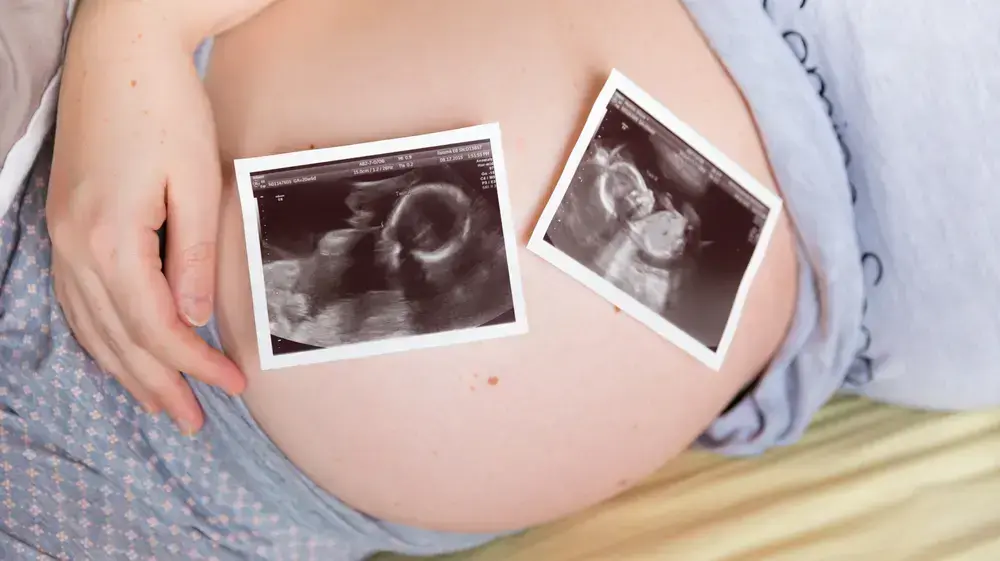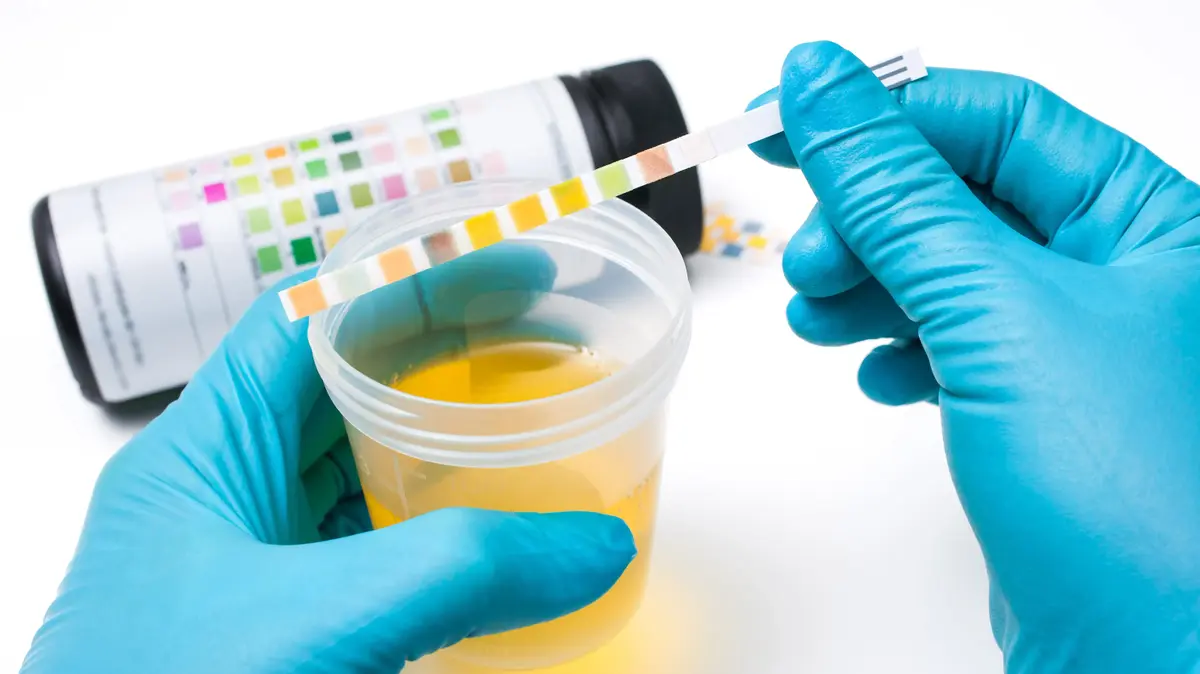"The most important test is the first" (Photo: ShutterStock)
The Ministry of Health recommends a series of tests that are important to perform during pregnancy, in order to diagnose and identify defects or health conditions that require a response, whether it is the first, second or third and last trimester.
The timing of the tests is usually adjusted to the week of pregnancy and the condition of the fetus at each stage.
Prof. Yaron Tselal, specialist in obstetrics and gynecology, ultrasound (system reviews) and amniocentesis, former senior doctor in the ultrasound unit in obstetrics and gynecology at Sheba Hospital and now owner of a private clinic, presents the most important and recommended tests.
Prof. Tselal explains, among other things, the importance of performing a nuchal translucency test and combining it with a system review already in the early stages of pregnancy.
Recommended tests by week of pregnancy
There is a wide variety of tests recommended by the Ministry of Health, whether pregnant or before becoming pregnant.
Some tests are included in the health basket and the others can be performed privately, sometimes financed by the health funds or through dedicated policies of the private insurance.
"The most important test is the first," says Prof. Tselal.
"It is an ultrasound examination performed between weeks 6 and 8 of pregnancy, which determines the normality of the pregnancy, its location, the number of fetuses (one or multiple fetuses) and the age of the pregnancy."
Amniocentesis for a pregnant woman (Photo: ShutterStock)
Tests during pregnancy according to chronological sequence The
following tests are performed according to the progress of the pregnancy:
nuchal translucency
- performed between weeks 11-13+6, in order to detect the risk of Down syndrome, chromosomal problems, heart defects, genetic syndromes and infections, through the thickness of the liquid in the nape of the fetus.
The ultrasound examination can be combined with an early biochemical examination.
Early system review
- usually performed at 14-16 weeks, with the aim of performing a detailed review of the fetal organs and identifying fetal defects if any exist.
Placental follicles
- the test is performed between the 11th and 13th weeks of pregnancy to assess the genetic status of the fetus.
Amniocentesis
- performed between weeks 18 and 20 in order to check the normality of the number of chromosomes in the fetus.
Today it is possible to perform the genetic chip test and even expand the investigation through an exome test.
Late system review - performed between weeks 22 and 24 with the aim of conducting another detailed review of all the fetal systems and identifying the organs that were not yet developed at the early review stage, or developmental defects that may be abnormal even after a normal review.
The assessment of the fetus in the third trimester
- is performed between weeks 30 and 32 in order to evaluate the fetus in the last trimester of pregnancy and to identify conditions that may develop during it even after two normal examinations.
The emphasis in this examination is on the development of the fetal brain, while referring to additional developmental defects that may be discovered during pregnancy.
In some cases findings are diagnosed that do not necessarily lead to termination of pregnancy and at the same time need to be referred by experts in the field, such as a pediatric orthopedist, pediatric nephrologist, pediatric neurologist, etc., whether during pregnancy or after birth.
At this stage, the condition and location of the placenta can also be diagnosed, and solutions can be given to this issue as well, such as a caesarean section.
The importance of combining cervical transparency and early systems review
Prof. Tselal explains that the whole world is moving towards early diagnosis in the first trimester of pregnancy, and emphasizes the advantages of advancing the date of the early systems review and combining it together with the cervical transparency test.
According to him, it is recommended to perform both tests at weeks 13-13.5 of pregnancy: "When an abnormal or unclear result is received in the cervical transparency, it requires the woman to run around and look for a professional solution that includes genetic counseling, additional tests, etc. Bringing up the date of the review of the systems and performing the test at the time when the transparency takes place The occiput allows receiving additional data that can complete the full picture already at an early stage of pregnancy."
He also says that when the review of the systems is completely normal, even in the presence of thickened nuchal translucency, in most cases it is a normal pregnancy, and therefore the combined test can reassure patients.
"If findings indicating severe defects in the fetus are discovered, it is possible to terminate the pregnancy in the early stages, a procedure that involves fewer complications compared to a late abortion. In this way, it is also possible to advance additional tests such as performing placental cysts, which can properly diagnose the condition of the fetus, and make more informed and grounded decisions." , emphasizes Prof. Tselal.
Performing the combined test at this early stage of pregnancy also has its drawbacks, such as the need to develop the skill of the medical provider who performs them, as well as the requirement for good and advanced equipment.
In addition, there are defects that can only be detected at 15-16 weeks of pregnancy, as well as the test of the developing brain later.
However, "this is the direction all over the world, as well as the interest and resonance in many countries, in some of which I am going to give a lecture on the subject in the coming months", Prof. Tselal testifies.
"You have to understand that the more tests of this type, the more the skill and accuracy will improve, and more parties will specialize and offer the combined test."
A broad global view in gynecological medicine
Prof. Tselal (68), married, father of five and grandfather to a granddaughter, worked as a senior physician in the ultrasound unit in obstetrics and gynecology at Sheba Hospital, Tel Hashomer.
He is currently a lecturer at the ultrasound school affiliated to the Faculty of Medicine at Tel Aviv University and has extensive experience in ultrasound examinations and amniotic fluid punctures, which he has been performing for many years at Assuta Hospital in Tel Aviv.
In addition, Prof. Tselal has published over 140 articles in the international scientific press.
The services he offers in his private clinic include all ultrasound examinations, starting with gynecology - sonographic evaluation of the pelvic organs as well as the structure of the uterus in three dimensions;
and all the tests performed during pregnancy - the normality of a young pregnancy, nuchal translucency, early, late and third trimester system reviews, Doppler tests and 3D ultrasound.
The medical center, which was established by Prof. Tselal as part of the expert center in Tel Aviv, offers the services of doctors from other fields, such as adolescent medicine, pregnant and menopausal women, high-risk pregnancy, cervical clinic, pelvic floor, fertility, and ultrasound examinations. Fetal heart, as well as alternative medicine treatments.
"After 40 years in the profession, I still enjoy learning every time to discover new things and enable an advanced and professional service, based on a broad global vision.
"In addition to the conferences in which I participate as a lecturer and as a guest and the experience I have gained over the years, I founded a few years ago the Facebook group: Ultrasound in Obstetrics and Gynecology "Ultrasound in Obstetrics and Gynecology, which includes doctors and medical staff members from all over the world, from the leading countries to the most remote villages, including Arab countries, with the aim of transferring information, learning from each other, getting opinions from the leading doctors and holding a professional brainstorming session," he explains.
Prof. Tselal's military past, in the position of commander of an evacuation branch in unit 669, is also to his credit.
In this framework, he participated in many evacuation operations and also took part in the operations to bring Ethiopian Jews to Israel, a Zionist enterprise that he is still excited to remember.
Prof. Yaron Tselal's clinic is located at 9 Barzel St. Ramat Ha'il, Tel Aviv.
For more details and to get in touch, click
here
or by phone
- 03-5440059
to the clinic website on the clinic
page on the Doctors website
More in Walla!
10 weeks and you will know how to swim long distances!
At TI we commit to success!
Served on behalf of TI SWIM
Zap group, in collaboration with zap doctors
health
Doctors
Tags
pregnancy







